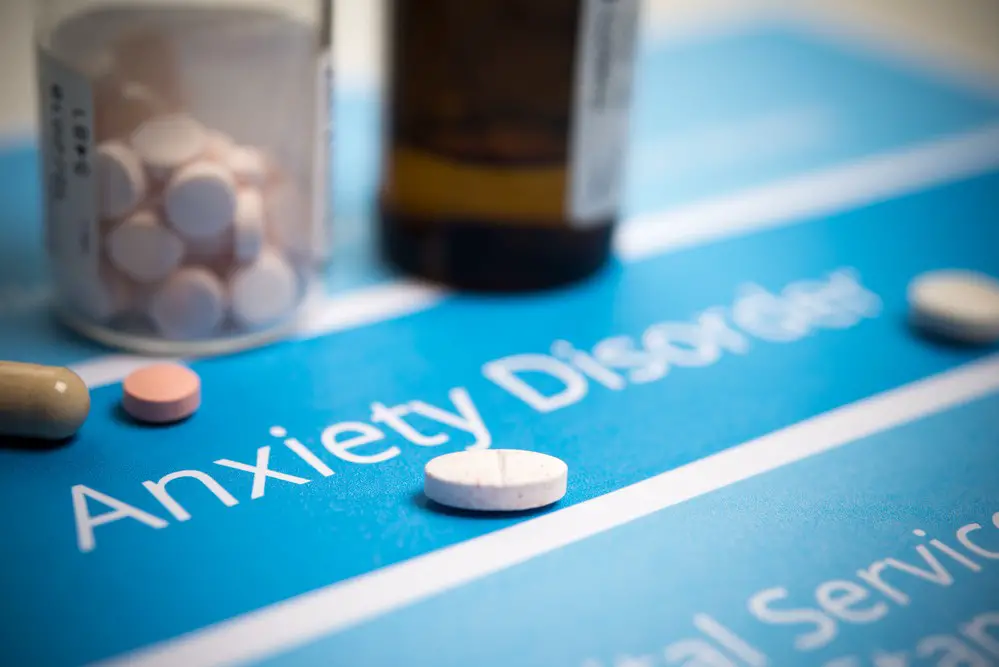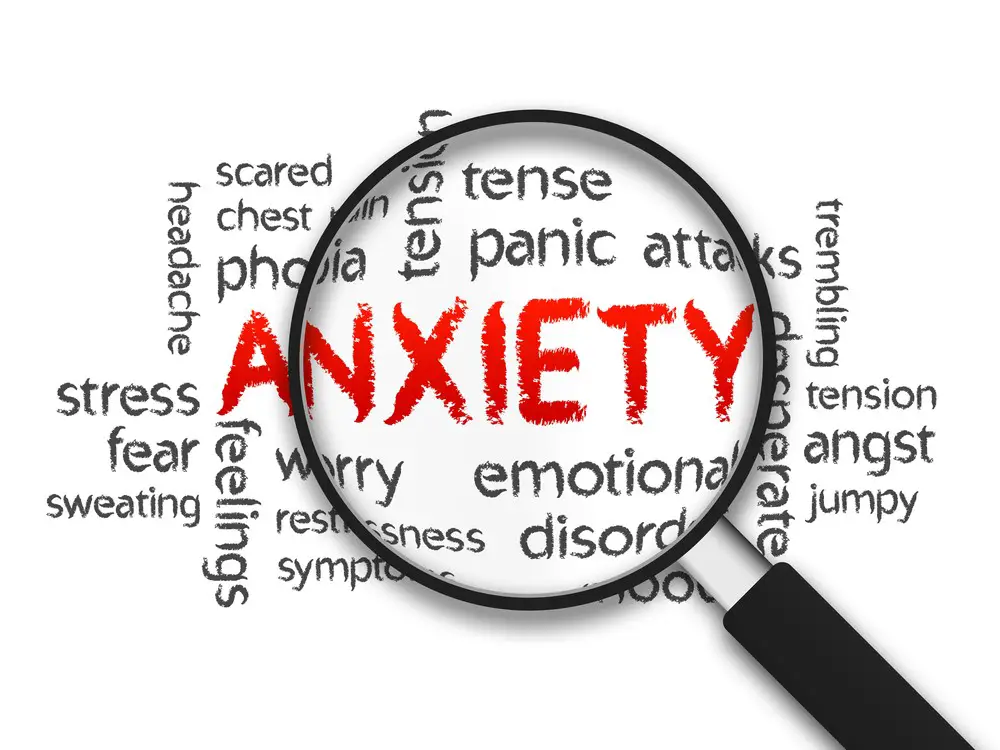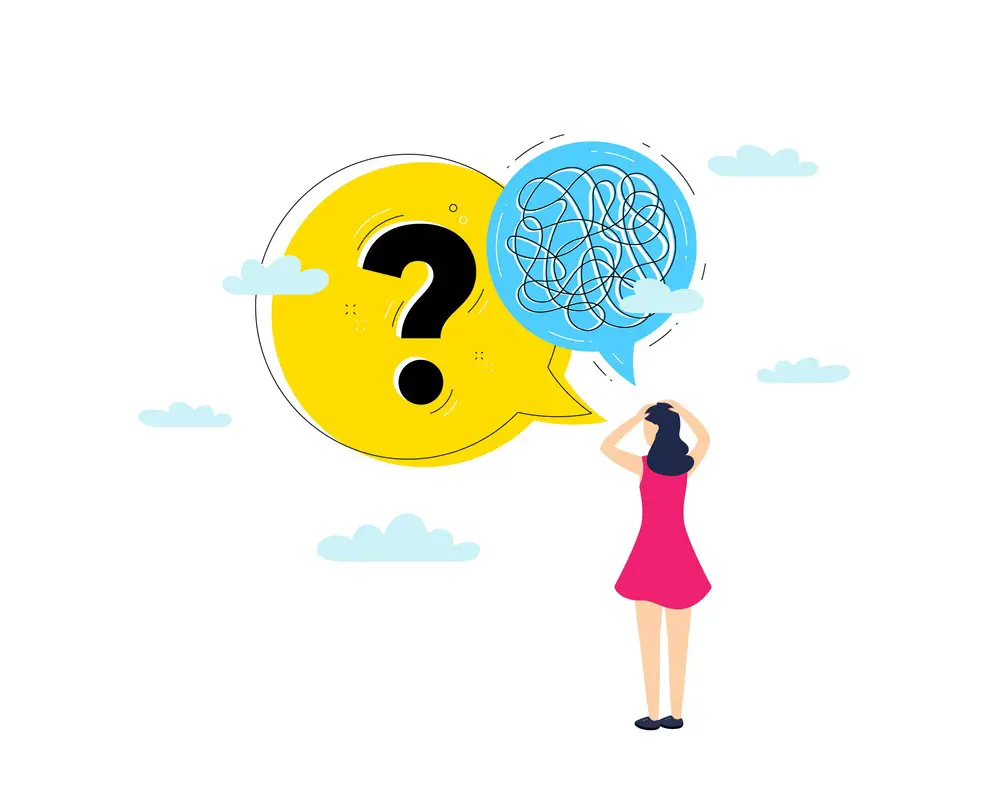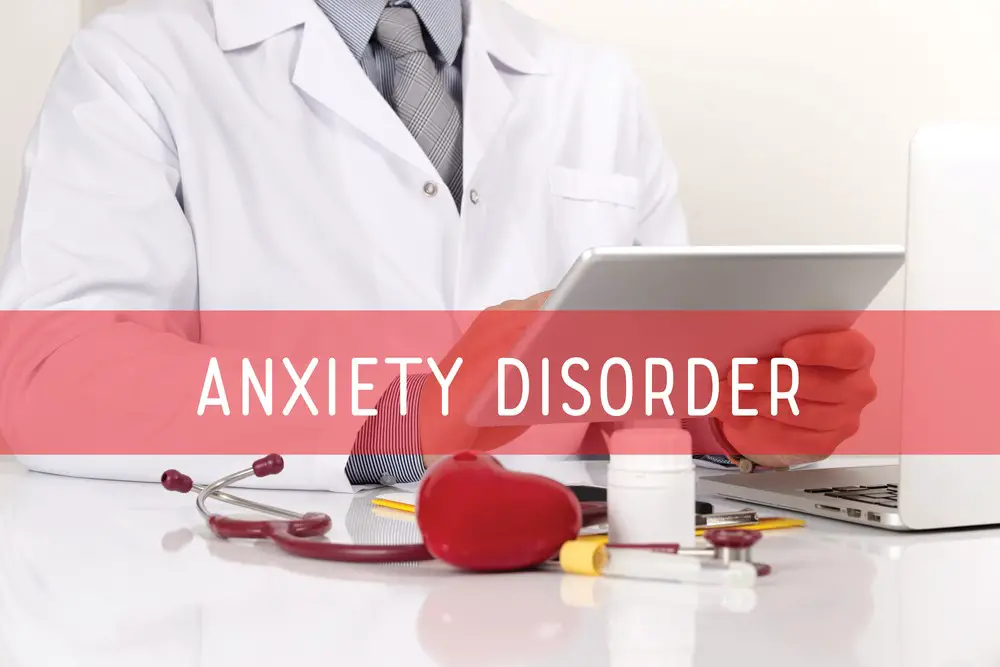As a BetterHelp affiliate, we receive compensation from BetterHelp if you purchase products or services through the links provided
Anxiety is a common issue affecting millions of people worldwide, and asking your doctor for anxiety medication can feel daunting. When your anxiety hinders your daily life, seeking professional help is best. This article guides approaching your healthcare provider and initiating a crucial conversation about your anxiety and possible treatment options.
Different types of anxiety disorders, ranging from generalized anxiety disorder to panic disorder, may require specific medications to manage symptoms. Each individual’s experience with anxiety will vary, so it is essential to discuss your concerns openly with your healthcare provider to determine the appropriate course of treatment for your unique situation. Talking to your doctor about anxiety medication should be collaborative, ensuring you feel supported and informed throughout the decision-making phase.
Key Takeaways
- Open communication with your doctor is essential for appropriate anxiety treatment
- Assess your symptoms and seek help when anxiety is interfering with daily life
- Explore various treatment options, including medication and alternative therapies

Understanding Anxiety and Anxiety Disorders
Anxiety is a natural human emotion when anticipating or facing challenging situations. Occasional anxiety is a part of everyday life. However, when anxiety becomes pervasive or overwhelming, interfering with one’s daily activities, it could be classified as an anxiety disorder.
Anxiety disorders are a group of mental health conditions characterized by excessive or persistent worry, fear, and nervousness. There are several types of anxiety disorders, including generalized anxiety disorder (GAD), panic disorder, and social anxiety disorder.
Generalized anxiety disorder is characterized by chronic worry and tension without apparent cause for concern. People with GAD may experience restlessness, fatigue, irritability, trouble concentrating, and sleep disturbances.
Panic disorder is characterized by recurrent unexpected panic attacks and sudden intense fear that can cause physical symptoms, such as a racing heart, chest pain, dizziness, and shortness of breath. These attacks often lead to a fear of future attacks, which may limit a person’s activities or cause them to avoid specific situations.
Social anxiety disorder, also known as social phobia, is characterized by overwhelming fear and anxiety in social situations due to fears of being judged, embarrassed, or rejected by others. It can interfere with daily activities, such as attending school, work, or social gatherings.
Understanding anxiety and anxiety disorders is essential for successful treatment. It’s important to consult with a healthcare professional if experiencing persistent or excessive worry, fear, or nervousness disrupts daily life. Timely consultation and accurate diagnosis can help individuals manage their symptoms and lead fulfilling lives.

Determining When to Seek Help
It’s normal to experience anxiety from time to time. However, when anxiety becomes persistent, it’s crucial to seek help from a doctor. Some key indicators can help individuals determine when to seek medical assistance.
One sign that anxiety might be a significant concern is when it leads to constant fatigue. If an individual consistently struggles with sleep, feels restless at night, or experiences difficulty staying awake during the day, this could be a symptom of an anxiety disorder.
Another aspect to consider is the individual’s coping mechanisms. If they cannot cope with daily stressors and find their anxiety interfering with their day-to-day life, this strongly indicates that seeking help might be necessary. Moreover, if the individual resorts to unhealthy coping methods like substance abuse, it’s essential to consult a medical professional.
Performance anxiety is another factor to keep in mind. If the fear of failure or embarrassment in social or professional situations remains persistent and overwhelming, it might be time to seek help. This type of anxiety can significantly impact a person’s ability to perform and succeed in various aspects of life.
When anxiety affects an individual’s sleep negatively, coping mechanisms, and performance in daily life, it is essential to consult a doctor for appropriate treatment. By paying attention to these signs, individuals can ensure they receive the necessary care to manage their anxiety effectively.
Finding the Right Healthcare Provider
When seeking help for anxiety, finding the right healthcare provider to ensure appropriate treatment and support is essential. The first step is to consider different types of professionals based on their expertise and your needs.
A primary care physician (PCP) is often the first point of contact and can help identify symptoms, provide initial treatment, and refer patients to specialists. Nurse practitioners (NPs) perform many tasks as primary care physicians and may diagnose and treat anxiety directly.
A mental health professional may be necessary for severe or persistent anxiety. Psychiatrists are medical doctors with specialized training in mental health disorders and can diagnose, treat with medications, and manage ongoing care. Psychologists and therapists focus on counseling techniques and cognitive-behavioral therapy, helping patients understand and cope with their anxiety.
To find the most suitable healthcare provider, consider the following steps:
- Assess your needs and symptoms, and research the roles of different healthcare professionals. Make an informed decision on whether a primary care physician, nurse practitioner, or mental health professional would best suit your needs.
- Consult your insurance provider to verify which doctors are covered within your network. This will help you avoid unexpected out-of-pocket costs and narrow down your options.
- Seek recommendations from trusted sources, such as friends, family members, or online reviews. These endorsements can provide valuable insights into a provider’s bedside manner and communication style.
- Schedule an initial consultation with the chosen healthcare provider. Use this opportunity to assess whether you feel comfortable and heard, as rapport plays a significant role in successful treatment.
Remember that it’s important to have a healthcare provider you trust and feel comfortable discussing your anxiety symptoms and treatment options. Don’t hesitate to explore different options and find the most appropriate fit for your needs.

Preparing for Your Appointment
Before you meet with your doctor, it’s crucial to do thorough research and gather the necessary information. Understanding your symptoms and possible triggers can help you have a productive discussion with your healthcare professional. Begin by listing the anxiety symptoms you’ve experienced and the situations in which they occur. This will enable your doctor to assess your needs better.
Additionally, take into consideration your mental health history. Mention any anxiety disorders in your family which might suggest a genetic predisposition. In conjunction with your mental health history, reflect on any lifestyle changes that may have contributed to your anxiety. Consider significant life events, dietary habits, exercise routines, and sleep patterns.
Substance use may also play a role in developing or exacerbating anxiety. Be prepared to provide your doctor with details about your alcohol consumption and any other drugs you may take, whether prescribed or recreational. This information will be crucial in determining your best treatment plan.
Lastly, compile a list of questions to address during your appointment. Inquire about potential diagnoses, treatment options, and the benefits and risks of anxiety medications. Ask about non-medication alternatives, such as therapy or lifestyle adjustments.
When discussing medications with your doctor, remember that transparency is critical. Inform your physician of current medications, including prescriptions, over-the-counter drugs, and supplements. This can prevent potential adverse reactions while ensuring the safest and most effective treatment for your anxiety.

Discussing Your Anxiety with Your Doctor
When experiencing anxiety, having an open and honest conversation with a healthcare professional is crucial. This allows the doctor to understand the symptoms better and potentially provide a diagnosis or referral to a mental health specialist.
During the discussion, the patient should clearly describe their anxious feelings, how long they have been experiencing them, and any particular situations that trigger the anxiety. It is important to be as specific as possible, so the doctor can accurately assess the severity of the condition.
Sharing personal and family medical history can also be helpful. Informing the doctor about any relatives with mental health issues may provide insight into the possibility of a genetic predisposition to anxiety. Additionally, discussing any past or current medications and their effectiveness in managing symptoms can aid the doctor in determining the best course of action.
Throughout the conversation, the patient should ask questions and actively participate in decision-making. Some useful questions may include:
- What type of anxiety disorder do I have, or is it generalized anxiety?
- Are there any lifestyle changes I can make to help alleviate my symptoms?
- What are the benefits of medications versus therapy for managing my anxiety?
It is worth noting that a referral to a mental health specialist may be necessary if the primary care doctor feels further evaluation or specialized treatment is needed. New patients might have to undergo a thorough assessment before receiving a prescription for anxiety medication.
Remember, asking for help and being honest with your healthcare professional will ultimately lead to better treatment outcomes and improved mental health.

Learning About Anxiety Medications and Treatment Options
Anxiety medications come in various forms and are often prescribed to help individuals manage their anxiety disorders. Understanding the different types of medication and their potential side effects is crucial when considering treatment options.
Antidepressants are commonly prescribed for anxiety disorders. Two well-known examples include Zoloft and Lexapro. These medications increase serotonin levels in the brain, which helps regulate mood and reduce anxiety. However, they may have side effects like nausea, insomnia, or weight gain.
Benzodiazepines are another type of anxiety medication. Examples include Xanax, Klonopin, and Ativan. These drugs work by depressing the central nervous system and providing a sedative effect, resulting in a calming sensation. However, they should be used cautiously, as they can be habit-forming and may lead to dependence or withdrawal symptoms.
Buspirone is an anxiolytic drug that acts on serotonin and dopamine receptors, offering another option for chronic anxiety patients. This medication has fewer side effects than benzodiazepines, but it may not be as effective for severe anxiety or panic attacks.
Beta blockers are typically prescribed for high blood pressure and heart conditions but can also help manage the physical symptoms of anxiety, such as rapid heartbeat and trembling. They are often used as needed and may not be suitable for long-term anxiety management.
When discussing anxiety medication with your doctor, it is essential to consider the potential side effects and weigh the benefits and risks. Your healthcare professional can help identify which medication is most suitable for your specific needs and provide guidance on the appropriate dosage and duration of treatment. Medication is only part of a comprehensive anxiety management plan; other therapeutic approaches, such as therapy and lifestyle changes, should also be explored.
Alternative and Complementary Treatments
When considering treatment options for anxiety, exploring alternative and complementary treatments alongside medication is important. One option is therapy, which may include various forms of psychotherapy, such as cognitive behavioral therapy (CBT) and talk therapy. These methods can help individuals understand and change unhealthy thought patterns, reducing anxiety symptoms.
Exercise is another effective method for managing anxiety. Regular physical activity can release endorphins, which improve mood and decrease stress. Incorporating exercise into one’s daily routine may provide significant benefits in terms of anxiety reduction.
Meditation and yoga are additional strategies to consider. Both practices can help cultivate mindfulness and relaxation, lowering stress levels and potentially easing anxiety symptoms. These techniques can be integrated into daily life with relative ease and have positively reduced anxiety.
In terms of supplements, some individuals may find relief from their anxiety symptoms by using specific natural supplements. However, consulting with a healthcare professional before adding supplements to one’s regimen is crucial to ensure safety and avoid potential drug interactions.
Stress management techniques can also be beneficial for individuals with anxiety. Deep breathing exercises, progressive muscle relaxation, and visualization, can help regulate stress levels and potentially decrease anxiety symptoms.
Finally, exposure therapy is a therapeutic method for individuals with anxiety disorders. This approach involves gradually facing feared situations or stimuli in a controlled and safe environment. By doing so, the individual can develop healthier coping skills and reduce anxiety levels.
Managing Anxiety and Building Coping Skills
Managing anxiety and building coping skills can be essential to living a healthy and fulfilling life. Various strategies can help relieve anxiety symptoms and maintain a good quality of life.
Lifestyle changes can play a significant role in reducing anxiety levels. A healthy diet, regular exercise, and proper sleep positively impact one’s physical health and the nervous system. Incorporating these habits can help combat irritability and promote a sense of well-being.
Stress management techniques like deep breathing exercises, meditation, and mindfulness can help calm the nervous system. These practices aid in achieving better control over emotions and reactions, relieving anxiety symptoms.
Participating in support groups or seeking professional help can be valuable for managing anxiety. Sharing experiences with others who face similar challenges can create a sense of belonging and provide useful coping strategies. In addition, mental health professionals can recommend personalized treatment plans and techniques for managing anxiety symptoms more effectively.
In conclusion, focusing on lifestyle changes, stress management, and seeking support can build coping skills and manage anxiety more effectively.
Remember, before asking your doctor for anxiety medication, exploring various options for managing anxiety and building coping skills is essential. Moreover, ensuring proper physical health and attending to your emotional needs can lead to a more balanced and fulfilling life.

Frequently Asked Questions
What are the common symptoms of anxiety to discuss with my doctor?
Common anxiety symptoms include excessive worry, restlessness, irritability, difficulty concentrating, and sleep disturbances. Physical symptoms like rapid heartbeat, trembling, sweating, and shortness of breath may also occur. It is essential to describe your specific experiences to your doctor to help them better understand your situation.
What tests can be conducted to determine my need for anxiety medication?
A doctor may conduct several assessments, such as a physical examination to rule out any underlying medical conditions, behavioral observations, and a comprehensive discussion about your anxiety symptoms, medical history, and lifestyle factors. They may also administer questionnaires or refer you to a mental health specialist for further evaluation.
Can you advise the different types of anxiety medications available?
Several anxiety medications are available, including selective serotonin reuptake inhibitors (SSRIs), serotonin-norepinephrine reuptake inhibitors (SNRIs), benzodiazepines, and beta-blockers. Your doctor will consider your symptoms, medical history, and potential side effects before prescribing the most suitable medication.
What are the potential side effects of anxiety medication?
Side effects of anxiety medication can vary depending on the type and dosage. Common side effects may include drowsiness, dizziness, headaches, dry mouth, and weight gain. It is essential to discuss any concerns or potential side effects with your doctor before starting the medication.
How should I monitor and assess the effectiveness of my anxiety medication?
Maintaining regular communication with your doctor while taking anxiety medication is crucial. They will likely schedule follow-up appointments or check-ins to monitor your progress and make any necessary adjustments to your treatment plan. It is important to report any side effects or concerns to your doctor promptly.
Are there alternative treatment options available for anxiety?
In addition to medication, alternative treatment options for anxiety include cognitive-behavioral therapy (CBT), relaxation techniques, such as deep breathing exercises and progressive muscle relaxation, and lifestyle changes, like regular exercise, a balanced diet, and stress management. Discuss these alternative treatments with your doctor to determine the best approach for your situation.
- How to Transform a Home’s Patio Space into a Relaxing Space - March 23, 2025
- 5 Strategies to Use a Cell Phone to Help Manage Your Stress - March 23, 2025
- 4 Ways to Use Measurements to Create a Relaxing Sleep Space - March 23, 2025
This site contains affiliate links to products. We will receive a commission for purchases made through these links.



